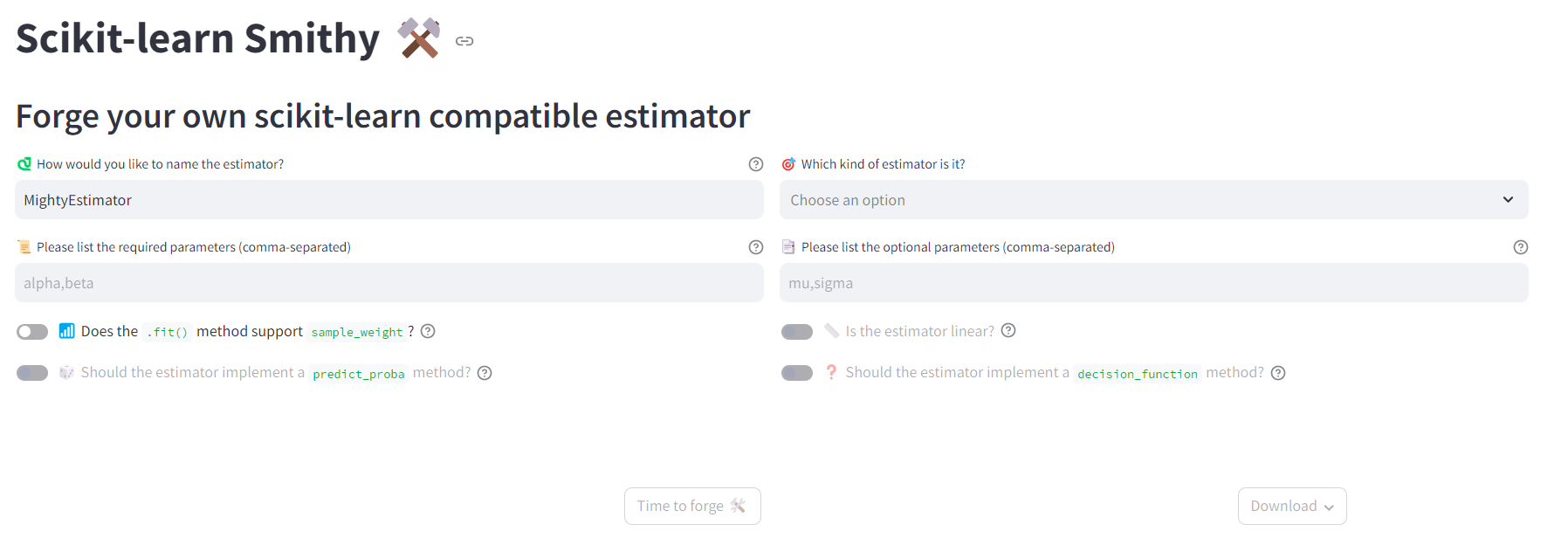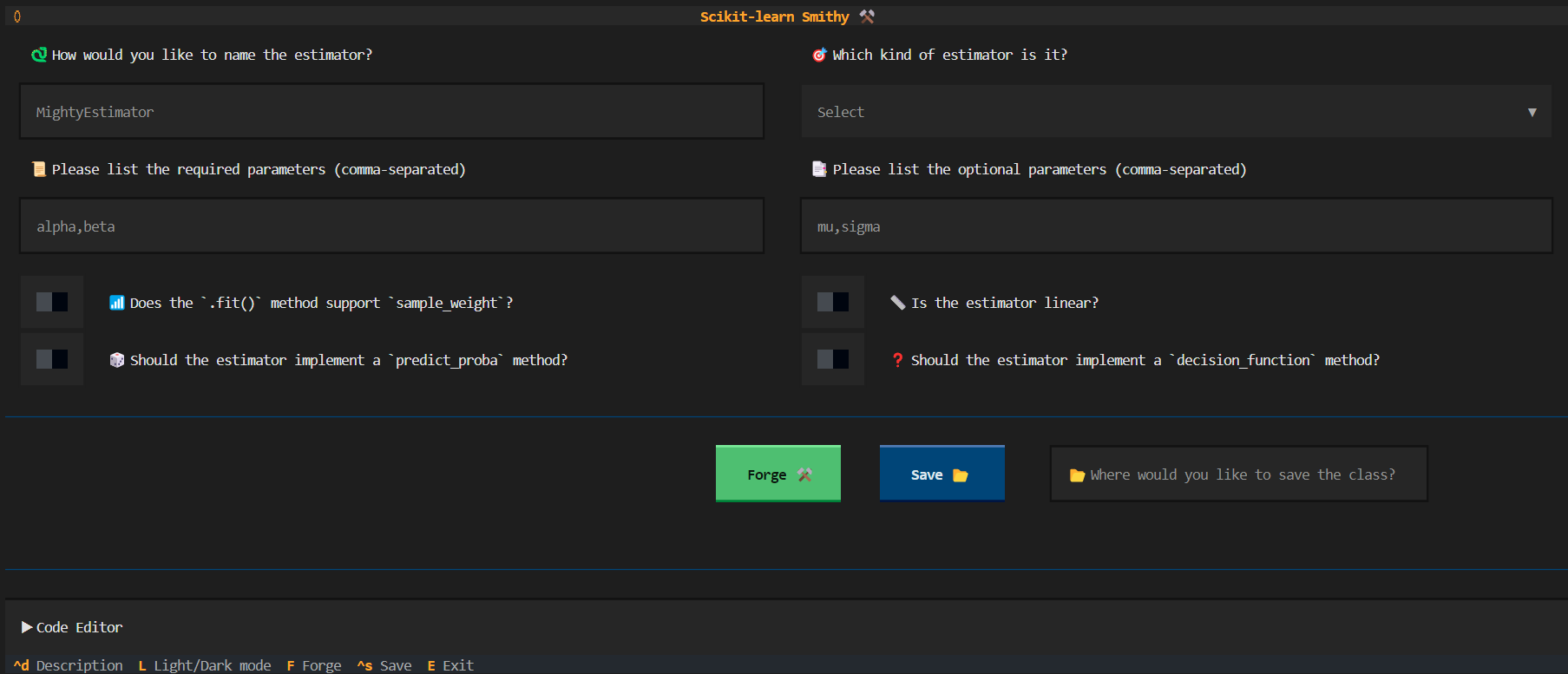Scikit-learn smithy is a tool that helps you to forge scikit-learn compatible estimator with ease.
WebUI | Documentation | Repository | Issue Tracker
How can you use it?
✅ Directly from the browser via a Web UI.
- Available at sklearn-smithy.streamlit.app
- It requires no installation.
- Powered by streamlit

✅ As a CLI (command line interface) in the terminal.
- Available via the
smith forgecommand. - It requires installation:
python -m pip install sklearn-smithy - Powered by typer.

✅ As a TUI (terminal user interface) in the terminal.
- Available via the
smith forge-tuicommand. - It requires installing extra dependencies:
python -m pip install "sklearn-smithy[textual]" - Powered by textual.

All these tools will prompt a series of questions regarding the estimator you want to create, and then it will generate the boilerplate code for you.
Writing scikit-learn compatible estimators might be harder than expected.
While everyone knows about the fit and predict, there are other behaviours, methods and attributes that
scikit-learn might be expecting from your estimator depending on:
- The type of estimator you're writing.
- The signature of the estimator.
- The signature of the
.fit(...)method.
Scikit-learn Smithy to the rescue: this tool aims to help you crafting your own estimator by asking a few questions about it, and then generating the boilerplate code.
In this way you will be able to fully focus on the core implementation logic, and not on nitty-gritty details of the scikit-learn API.
Once the core logic is implemented, the estimator should be ready to test against the somewhat official
parametrize_with_checks
pytest compatible decorator:
from sklearn.utils.estimator_checks import parametrize_with_checks
@parametrize_with_checks([
YourAwesomeRegressor,
MoreAwesomeClassifier,
EvenMoreAwesomeTransformer,
])
def test_sklearn_compatible_estimator(estimator, check):
check(estimator)and it should be compatible with scikit-learn Pipeline, GridSearchCV, etc.
Scikit-learn documentation on how to develop estimators.
The following types of scikit-learn estimator are supported:
- ✅ Classifier
- ✅ Regressor
- ✅ Outlier Detector
- ✅ Clusterer
- ✅ Transformer
- ✅ Feature Selector
- 🚧 Meta Estimator
sklearn-smithy is available on pypi, so you can install it directly from there:
python -m pip install sklearn-smithyRemark: The minimum Python version required is 3.10.
This will make the smith command available in your terminal, and you should be able to run the following:
smith versionsklearn-smithy=...
To run the TUI, you need to install the textual dependency as well:
python -m pip install "sklearn-smithy[textual]"Please refer to the dedicated user guide documentation section.
The idea for this tool originated from scikit-lego #660, which I cannot better explain than quoting the PR description itself:
So the story goes as the following:
- The CI/CD fails for scikit-learn==1.5rc1 because of a change in the
check_estimatorinternals- In the scikit-learn issue I got a better picture of how to run test for compatible components
- In particular, rolling your own estimator suggests to use
parametrize_with_checks, and of course I thought "that is a great idea to avoid dealing manually with each test"- Say no more, I enter a rabbit hole to refactor all our tests - which would be fine
- Except that these tests failures helped me figure out a few missing parts in the codebase
